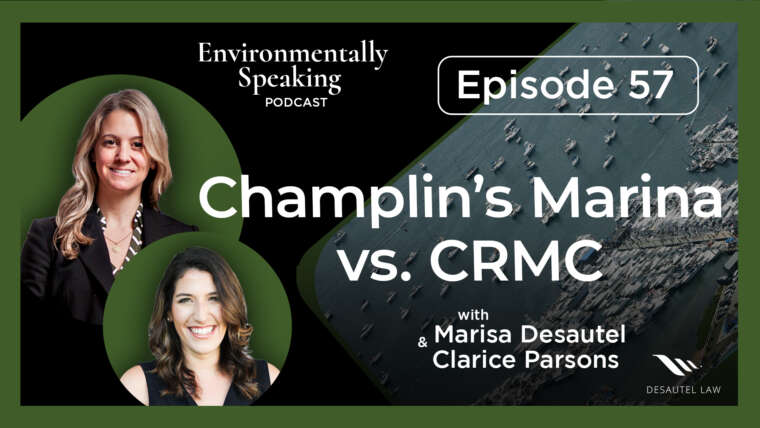Most people don’t know about all of the different aspects of environmental law practice. There are a plethora of laws with authority over different activities or processes you may consult an environmental lawyer about. Recently on the blog, we looked at shoreline access in Rhode Island through the state Constitution and state case law. In this somewhat-related blog post, we will take a look at a federal coastal law that guides environmental law practice – the Coastal Zone Management Act.
Environmental Law Practice and the Coastal Zone Management Act
The Coastal Zone Management Act of 1972, or CZMA, was passed by Congress to protect and enhance the nation’s coastal resources while simultaneously allowing for offshore and nearshore development. In the early context, this mostly related to oil and gas resources, though now it includes renewable energy as well. The federal authority under the CZMA was given to a federal agency with the most knowledge related to the law and coastal topics, the National Oceanic and Atmospheric Administration (NOAA).
Attorneys who work in environmental law practice and/or energy law practice are familiar with the CZMA and its regulations in order to assist a wide range of clients. For example, a client in RI may be seeking a Coastal Resources Management Council (CRMC) Assent to conduct aquaculture operations, or build a marine terminal of some kind. An Assent may invoke requirements under the CZMA as well, if it includes federal waters. States exercise control over the waters up to 3 nautical miles away from their coast, but the federal government exercises control outside of that up to the U.S. water limits.
The CZMA has three programs, and effective environmental law practice dealing with this law must involve an understanding of each program. First, there is the National Coastal Zone Management Program, which is a federal-state cooperation program that oversees resources and activities in the ocean. Second is the National Estuarine Research Reserve System which provides a process for designating reserve lands in each coastal state that conduct coastal research. Third, the Coastal and Estuarine Land Conservation Program (whose acronym is pronounced “kelp”), which aims to purchase land or obtain easements to preserve and protect coastal ecology, recreation, etc.
A Special State Tool in Coastal Zone Management Act Environmental Law Practice
The CZMA is a unique law that also operates as a tool for environmental law practice. Congress specifically intended to encourage states to develop coastal zone management plans for their water-based resources, and specifically intended for a system of cooperative federalism through its inclusion of the National Coastal Zone Management Program. “Cooperative federalism” is a term which describes the states working in conjunction with NOAA to develop management programs, where their authority may overlap.
In R.I., for example, the state works with NOAA through its designated agency, the CRMC. For these management programs, the state requirements have federal CZMA-based weight once approved by NOAA, in cases where a proposed activity produces coastal effects in the state. Essentially, a state can take aspects of its state regulatory framework, which applies to environmental attorneys’ clients within the state, and incorporate it into the federal regulatory framework through the federal consistency provision of the CZMA. Those requirements then apply to people and businesses proposing activities in federal waters, if those activities will have state coastal effects.
Environmental attorneys must understand how these processes work in order to represent clients for projects/activities under the CZMA jurisdiction. Our attorneys have vast experience with environmental law practice related to the CZMA and the areas of law discussed above. Reach out to us if you have questions about your proposed activity or project in coastal waters. You can always call at 401.477.0023.


